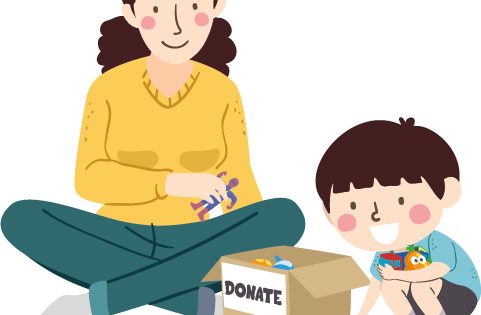Self-esteem is the way people feel about themselves. How they define themselves will influence their motivations, attitudes, and subsequently, their emotional intelligence. Children with positive self-esteem generally feel good about themselves and feel they have a lot to offer. In contrast, children with low or poor self-esteem generally feel worthless and feel that they have little to contribute
A child with low self esteem is likely to display the following characteristics:
- Feels isolated and unloved
- Tends to escape new and different situations
- Unable to cope well with failure and criticism
- Tends to put himself down and constantly compares
- himself to peers in a negative way
- Feels his efforts will never be as good as others
These symptoms can happen as a result of many factors, but is mainly due to the lack of affirming, positive feedback from others, particularly parents and teachers.
Parenting styles play a part
Recently, there has been much debate regarding the difference in parenting styles practiced in Eastern and Western cultures. It is suggested that Western-style parenting allows for the views and opinions of the child to be heard and not brushed aside so that the child can feel that he or she is a significant member of the community. In comparison, the Asian style of parenting adopts the practice where children are usually “seen and not heard”, thus curbing their sense of self. Although this is not true for all Asian parents, the parenting style is very important as it can influence children’s self-esteem and shape their character and personality in the future.
Here are a few tips on how you can help promote healthy self-esteem in your child.
- Be affectionate and spontaneous. Your love will go a long way to boost your child’s self-esteem. Give hugs, praise and encouragement when they have done a good job or put in a lot of effort. As children grow and develop, they are affected and shaped by people’s opinions — especially their parents’. Your reactions and words will either give them confidence to believe that they can do anything or convince them that they are worthless. By loving and accepting them unconditionally, you will reassure your child and teach them that, with support, they can be or do anything.
- Be a positive role model. If you’re excessively harsh on yourself or hesitant about your abilities and limitations, your child may eventually mirror you. Nurture your own self-esteem, and your child will have a great role model.
- Also, try to create a loving home environment where your kids will feel safe and comfortable. A child who is exposed to parents who argue repeatedly may become depressed and isolated. A healthy environment at home will shape your child’s identity at school and may affect his academic and athletic performance.
- Never compare your child with other children or siblings who are faring better, or ridicule, insult or instill guilt in them and then resort to harsh punishment in the wake of failure.Your child must be made to realize that it is all right to fail sometimes but with a healthy self esteem, he or she can bounce back from failures.
- Have your children take responsibility for their own problems. You can guide them as they find solutions, but allowing them to decide and overcome their problems can bolster their confidence. Dealing with adversity, whether it’s failing a test and being able to pick himself up again, or completing a difficult assignment will encourage a sense of pride and independence.
Finding professional help
If you suspect your child has low self-esteem, consider professional help. Family and child counselors can work to uncover underlying issues that prevent a child from feeling good about himself or herself. Therapy can help children learn to view themselves and the world positively. When children see themselves in a more realistic light, they can accept who they truly are. With a little help, every child can develop healthy self-esteem for a happier, more satisfying life.







Comments